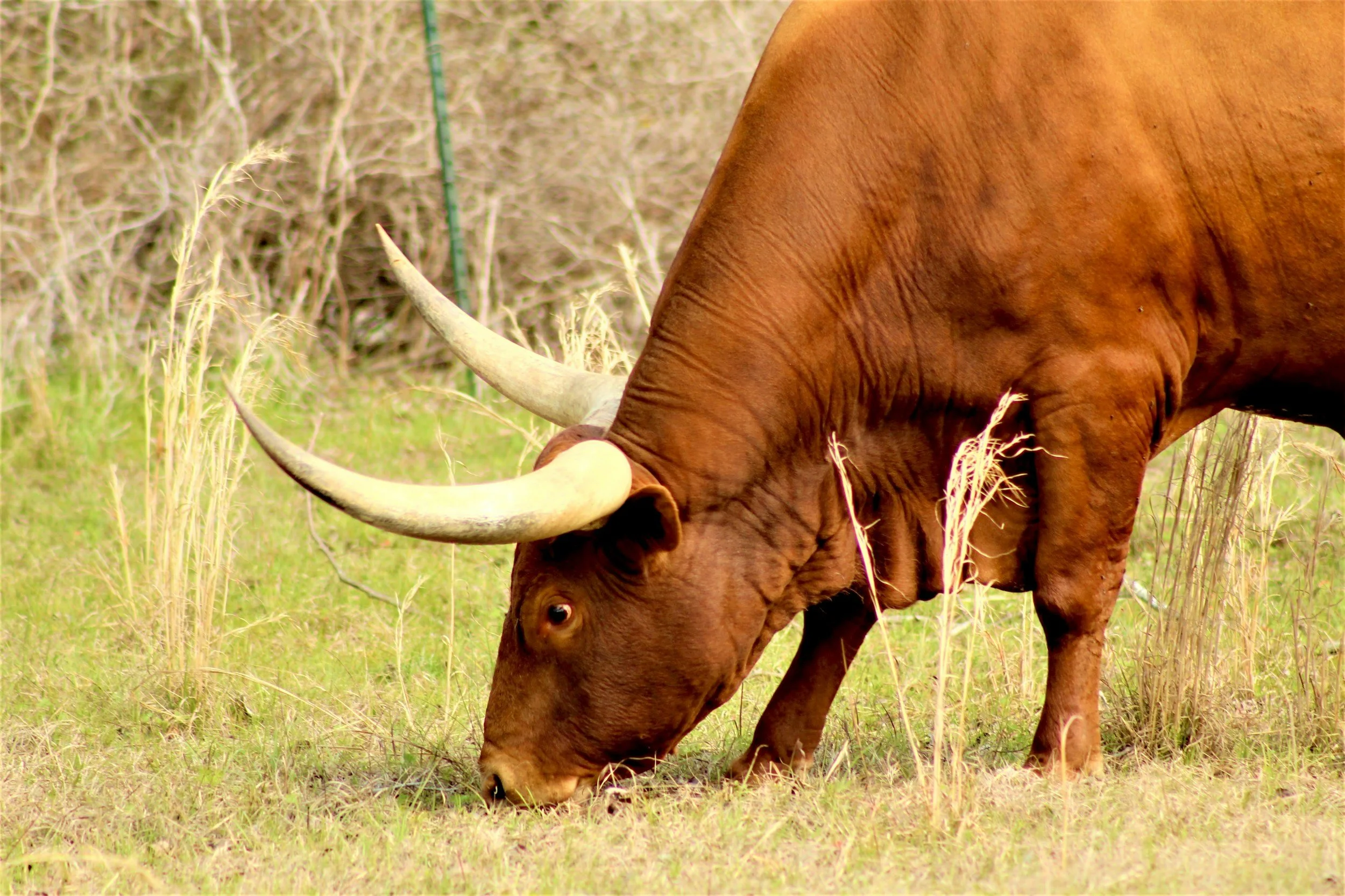
Acts 20:28
They must feed the church of God, must do all the parts of the shepherd’s office, must lead the sheep of Christ into the green pastures, must lay meat before them, must do what they can to heal those that are distempered and have no appetite to their meat, must feed them with wholesome doctrine, with a tender evangelical discipline, and must see that nothing is wanting that is necessary in order to their being nourished up to eternal life. There is need of pastors, not only to gather the church of God by the bringing in of those that are without, but to feed it by building up those that are within.

Acts 11:27-28
The good use they made of this prediction. When they were told of a famine at hand, they did not do as the Egyptians, hoard up corn for themselves; but, as became Christians, laid by for charity to relieve others, which is the best preparative for our own sufferings and want. It is promised to those that consider the poor that God will preserve them, and keep them alive, and they shall be blessed upon the earth, Ps. 41:1-2. And those who show mercy, and give to the poor, shall not be ashamed in the evil time, but in the days of famine they shall be satisfied, Ps. 37: 19,21. The best provision we can lay up against a dear time is to lay up an interest in these promises, by doing good, and communicating, Luke 12:33. Many give it as a reason why they should be sparing, but the scripture gives it as a reason why we should be liberal, to seven, and also to eight, because we know not what evil shall be upon the earth, Eccl. 11:2. Observe,

2 Corinthians 6:14-15
It is a very great absurdity, 2 Cor. 6:14-15. It is an unequal yoking of things together that will not agree together; as bad as for the Jews to have ploughed with an ox and an ass or to have sown divers sorts of grain intermixed. What an absurdity it is to think of joining righteousness and unrighteousness, or mingling light and darkness, Fire and Water, together! Believers are, and should be, righteous; but unbelievers are unrighteousness. Believers are made light in the Lord, but unbelievers are in darkness; and what comfortable communion can these have together? Christ and Belial are contrary to one another; they have opposite interests and designs, so that it is impossible there should be any concord or agreement between them.

Philippians 4:11-18
It did not come from discontent, or distrust of Providence: Not that I speak in respect of want (Phil. 4:11); not in respect of any want he felt, nor of any want he feared. As to the former, he was content with the little he had, and that satisfied him; as to the latter, he depended upon the providence of God to provide for him from the day to day, and that satisfied him: so that he did not speak in respect of want any way. For I have learned, in whatsoever state I am, therewith to be content. We have here an account of Paul’s learning, not that which he got at the feet of Gamaliel, but that which he got at the feet of Christ.

James 1:10-11
Both these are allowed to rejoice. No condition of life puts us out of a capacity of rejoicing in God. If we do not rejoice in him always, it is our own fault. Those of low degree may rejoice, if they are exalted to be rich in faith and heirs of the kingdom of God (as Dr. Whitney explains this place); and the rich may rejoice in humbling providences, as they produce a lowly and humble disposition of mind, which is highly valuable in the sight of God. Where any are made poor for righteousness’ sake, their very poverty is their exaltation. It is an honour to be dishonored for the sake of Christ.

1 Peter 2:25
Here is the recovery of these by conversion: But are now returned. The word is passive, and shows that the return of a sinner is the effect of divine grace. This return is from all their errors and wandering, to Christ, who is the true and careful shepherd, that loves his sheep, and laid down his life for them, who is the most vigilant pastor, and bishop, or overseer of souls.

Luke 8:5-18
It is not enough that the fruit be brought forth, but it must be brought to perfection, it must be fully ripened. If it be not, it is as if there was no fruit at all brought forth; for that which in Matthew and Mark is said to be unfruitful is the same that here is said to bring forth none to perfection. For factum non dicitur quod non perseverat—perseverance is necessary to the perfection of a work.

1 Corinthians 9:7-14
He argues it out of the Jewish law: Say I these things as a man? Or saith not the law the same also? 1 Cor. 9:8. Is this merely a dictate of common reason and according to common usage only? No, it is consonant to the old law. God had therein ordered that the ox should not be muzzled while he was treading out the corn, nor hindered from eating while he was preparing the corn for man’s use, and treading it out of the ear. But this law was not chiefly given out of God’s regard to oxen, or concern for them, but to teach mankind that all due encouragement should be given to those who are employed for us, or labouring for our good—that the labourers should taste of the fruit of their labours. Those who plough should plough in hope; and those who thresh in hope should be partakers of their hope, 1 Cor. 9:10. The law saith this about oxen for our sakes. Note, those that lay themselves out to do our souls good should not have their mouths muzzled, but have food provided for them.

Romans 8:35-36
Ps. 44:22, For thy sake we are killed all the day long, which intimates that we are not to think strange, no not concerning the fiery bloody trial. We see the Old-Testament saints had the same lot; so persecuted they the prophets that were before us. Killed all the day long, that is, continually exposed to and expecting the fatal stroke. There is still every day, and all the day long, one or other of the people of God bleeding and dying under the rage of persecuting enemies. Accounted as sheep for the slaughter; they make no more of hilling a Christian than of butchering a sheep. Sheep are killed, not because they are hurtful while they live, but because they are useful when they are dead. They kill the Christians to please themselves, to be food to their malice. They eat up my people as they eat bread, Ps. 14:4.

Galatians 6:7-9
Our present time is seed-time: in the other world there will be a great harvest; and, as the husband an reaps in the harvest according as he sows in the seedness, so we shall reap then as we sow now. And he further informs up (Gal. 6:8) that, as there are two sorts of seedness, sowing to the flesh and sowing to the Spirit, so accordingly will the reckoning be hereafter: If we sow to the flesh, we shall of the flesh reap corruption. If we sow the wind, we shall reap the whirlwind. Those who live a carnal sensual life, who, instead of employing themselves to the honour of God and the good of others, spend all their thoughts, and care, and time, about the flesh, must expect no other fruit of such a course than corruption—a mean and short-lived satisfaction at present, and ruin and misery at the end of it. But, on the other hand, those who sow to the Spirit, who under the guidance and influence of the Spirit do live a holy and spiritual life, a life of devotedness to God and usefulness and serviceableness to others, may depend upon it that of the Spirit they shall reap life everlasting—they shall have the truest comfort in their present course, and an eternal life and happiness at the end of it.

Acts 9:40-43
He tarried not in the house of Tabitha, though she was rich, lest he should seem to seek his own glory; but he took up his lodgings with one Simon a tanner, an ordinary tradesman, which is an instance of his condescension and humility: and hereby he has taught us not to mind the high things, but condescend to those of low estate, Rom. 12:16. And, though Peter might seem to be buried in obscurity here in the house of a poor tanner by the sea-side, yet hence God fetched him to a noble piece of service, which is recorded in the next chapter; for those that humble themselves shall be exalted.

Job 1:13-17
He had 3000 camels, and servants tending them; and he lost them all at the same time by the Chaldeans, who came in three bands, and drove them away, and slew the servants, Job 1:17. If the fire of God, which fell upon Job’s honest servants, who were in the way of their duty, had fallen upon the Sabeans and Chaldean robbers who were doing mischief, God’s judgements therein would have been like the great mountains, evident and conspicuous; but when the way of the wicked prospers, and they carry off their booty, while just and good men are suddenly cut off, God’s righteousness is like the great deep, the bottom of which we cannot find, Ps. 36:6.

John 1:29
He does this by taking it upon himself. He is the Lamb of God, that bears the sin of the world; so the margin reads it. He bore sin for us, and so bears it from us; he bore the sin of many, as the scape-goat had the sins of Israel put upon its head, Lev. 16:21. God could have taken away the sin by taking away the sinner, as he took away the sin of the old world; but he has found out a way of abolishing the sin, and yet sparing the sinner, by making his Son sin for us.

Mark 1:16-20
Christ puts honor upon those who, though mean in the world, are diligent in their business, and loving to one another; so those were, whom Christ called. He found them employed, and employed together. Industry and unity are good and pleasant, and there the Lord Jesus commands the blessing, even this blessing, Follow me.

Colossians 2:6-7
The more closely we walk with Christ the more we are rooted and established in the faith. A good conversation is the best establishment of a good faith. If we walk in him, we shall be rooted in him; and the more firmly we are rooted in him the more closely we shall walk in him; rooted and built up. Observe, we cannot be built up in Christ, unless we be first rooted in him. We must be united to him by a lively faith, and heartily consent to his covenant, and then we shall grow upon him all things—As you have been taught—“according to the rule of the Christian doctrine, in which you have been instructed.” Observe, A good education has a good influence upon our establishment. We must be established in the faith, as we have been taught, abounding therein.

Proverbs 3:18-20
She is a tree of life. True grace is that to the soul which the tree of life would have been, from which our first parents were shut out for eating of the forbidden tree. It is a seed of immortality, a well of living waters, spring up to life eternal. It is an earnest of the New Jerusalem, in the midst of which the tree of life, Rev. 22:2; 2:7). Those that feed and feast on this heavenly wisdom shall not only be cured by it of every fatal malady, but shall find an antidote against age and death; they shall eat and live forever.

1 Timothy 4:3-5
We must not refuse the gifts of God’s bounty, nor be scrupulous in making differences where God has made none; but receive them, and be thankful, acknowledging the power of God the Maker of them, and the bounty of God the giver of them: Every creature of God is good, and nothing to be refused, 1 Tim. 4:4. This plainly sets us at liberty from all the distinctions of meats appointed by the ceremonial law, as particularly that of swine’s flesh, which the Jews were forbidden to eat, but which is allowed to us Christians, by this rule, Every creature of God is good, &c. Observe, God’s good creatures are then good, and doubly sweet to us, when they are received with thanksgiving.—For it is sanctified by the word of God and prayer, 1 Tim. 4:5.

1 Samuel 9:10-13
As a common meal, and so this is an instance of the great duty of craving a blessing upon our meat before we partake of it. We cannot expect benefit from our food without that blessing, and we have no reason to expect that blessing if we do not pray for it. Thus we must give glory to God as our benefactor, and own our dependence upon him and our obligations to him.

Job 1:1-3
That he was a man who prospered greatly in this world, and made a considerable figure in his country. He was prosperous and yet pious. Though it is hard and rare, it is not impossible, for a rich man to enter into the kingdom of heaven. With God even this is possible, and by his grace the temptations of worldly wealth are not insuperable. He was pious, and his piety was a friend to his prosperity; for godliness has the promise of the life that now is.He was prosperous, and his prosperity put a lustre upon his piety, and gave him who was so good so much greater opportunity of doing good. The acts of his piety were grateful returns to God for the instances of his prosperity; and, in the abundance of the good things God gave him, he served God the more cheerfully.

Proverbs 3:9-10
A precept which makes it our duty to serve God with our estates: Honour the Lord with thy substance. It is the end of our creation and redemption to honour God, to be to him for a name and a praise; we are no other way capable of serving him than in his honour. His honour we must show forth and the honour we have for him. We must honour him, not only with our bodies and spirits which are his, but with our estates too, for they also are his: we and all our appurtenances must be devoted to his glory. Worldly wealth is but poor substance, yet, such as it is, we must honour God with it, and then, if ever, it becomes substantial.